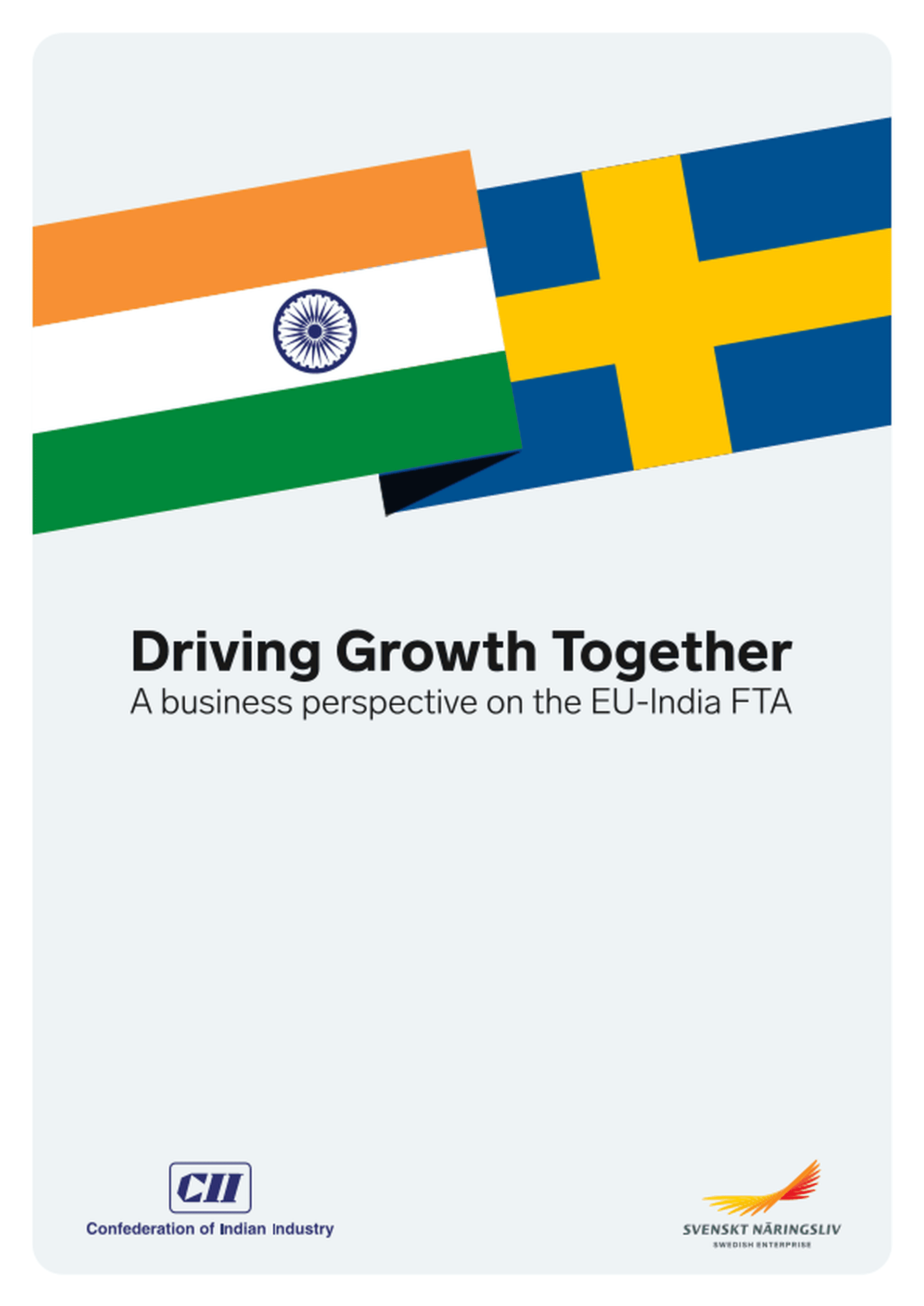Driving growth together - a business perspective on the EU India FTA

A business-friendly FTA between India and the EU presents an opportunity to reduce existing barriers to trade and investment, provide greater legal and regulatory certainty and facilitate deeper collaboration in strategically important sectors. It can also anchor broader supply chain resilience and sustainability efforts between Europe and the Indo-Pacific. Sweden is a strong proponent within the EU of open, rules based trade and is actively supporting an ambitious EU–India FTA that promotes competitiveness, innovation, and sustainable growth across both regions.
This joint paper by the Confederation of Indian Industry (CII) and the Confederation of Swedish Enterprise (Swedish Enterprise) presents a focused set of 9 key priorities to make the FTA commercially meaningful and future-ready:
1. Cut and bind tariffs in as many sectors as possible.
2. Strive to converge towards international standards and enable mutual recognition of conformity assessments for market-specific technical standards.
3. Mandate simple, predictable and uniformly applied customs procedures across all ports of entry.
4. Simplify and streamline regulations through early consultations, transparent procedures, digital onestop platforms.
5. Stipulate technical assistance and technology transfer provisions so that Indian businesses can more easily adapt to EU climate and ESG regulations, reporting and product traceability.
6. Encourage open, secure, and collaborative digital trade and promote regulatory and technological cooperation.
7. Promote non-discriminatory, transparent and fair public procurement in mutually agreed sectors.
8. Make legally binding commitments on market access and national treatment in select services based on mutual interests.
9. Empower more businesses especially MSMEs to take advantage of closer ties between India and the EU through trade and investment facilitation and by providing technical assistance